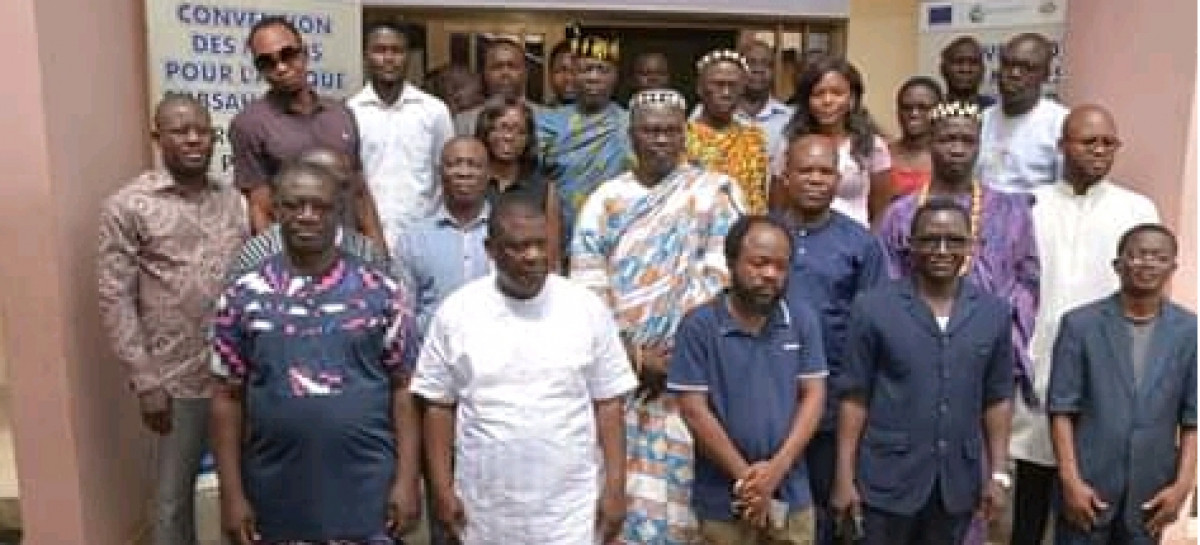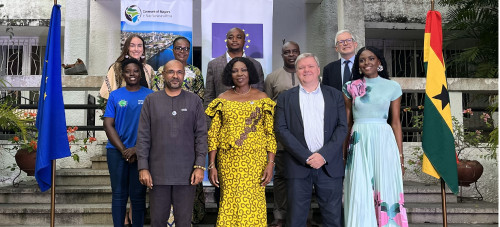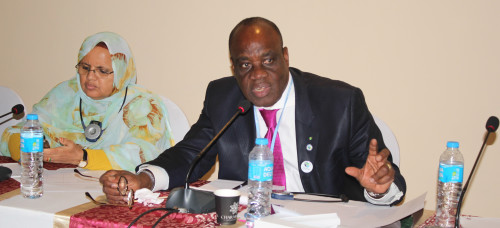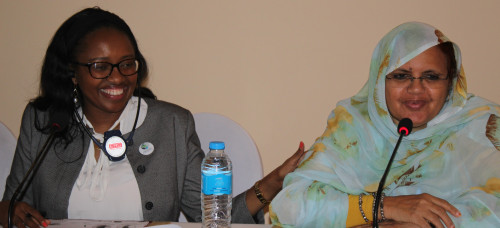The city of Tsévié in Togo is one of the first pilot cities to validate its SEACAP politically
Published: 30 Jan 2020

The Municipality of Tsévié conducted the political validation of its Action Plan for Access to Sustainable Energy and Climate at the end of 2019, renamed SEACAP-Zio1 after the local elections of last June 30.
The validation took place on Friday, 29 November 2019 in the conference room of the of Zio 1 municipality by a unanimous vote, in the presence of local elected officials, planning services, representatives of the Ministries of the Partner Municipalities, the Deconcentrated Services of the central government, CSOs, representatives of the traditional chiefdoms, technicians, students and representatives for women and youth.

SEACAP resulting from the complementarity between local and international expertise
The SEACAP-Zio1, initiated in 2016, mobilized the complementary expertise of local and international stakeholders. At the local level, the municipal project team received technical support from five associate experts from the University of Lomé, including, among others, Prof. Dourma, M. Agbati, M. Lawson and Prof. Batawila.
Some international partners, such as Sustainable Energy Africa (South Africa), ICLEI Africa (South Africa) and ADEME (France), also provided technical support at several stages of the process including the publication of a modeling report on greenhouse gas emissions of the city.
A plan for winning the support of most Tsévié inhabitants


Placed under the aegis of the Secretary General of the commune, Mr. Komlan Djifa Edoh, representing the mayor of the commune, this important meeting hosted more than fifty participants from research institutes, national NGOs, cooperating organizations and several additional actors in the field of climate change.
The Secretary General of the municipality welcomed the commitment of the various stakeholders throughout the process: “Through the historic decision to set up this framework, the representatives of the various organizations intend to provide a coordinated, coherent and effective response, by putting in place an adequate system that will better meet the needs, so as to better face climate challenges.”
As a reminder, these stakeholders have been consulted on several occasions and have expressed a willingness to contribute to the effective implementation of the plan.
After political adoption, the need to mobilize resources for the effective implementation of the plan
The coordinator of the Program of Energy Promotion for Development (PPED), Michel Houndjo, emphasized the efforts that still need to be made to operationalize the climate action plan.
“The municipality needs, more than ever, the financial support of local and international partners so that the ideas for projects mentioned in the plan become a reality”.
Togolese cities will continue to benefit from the support of some partners of the Covenant of Mayors in sub-Saharan Africa (Com SSA) until 2022. The experience and collaborative approach adopted by the city of Tsévié, are already a source of inspiration for other Togolese cities and, more broadly, for francophone Africa.







